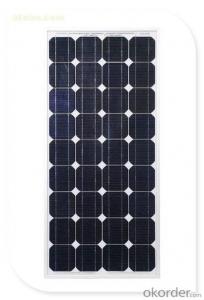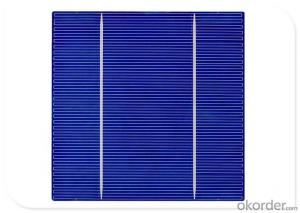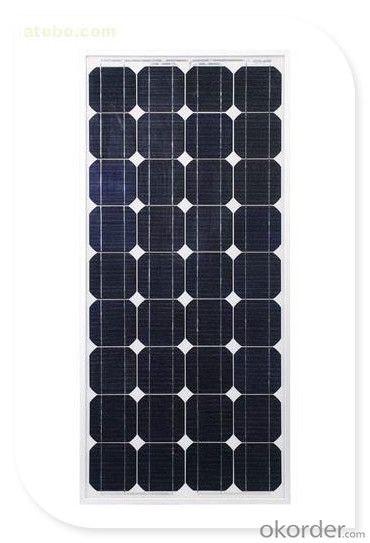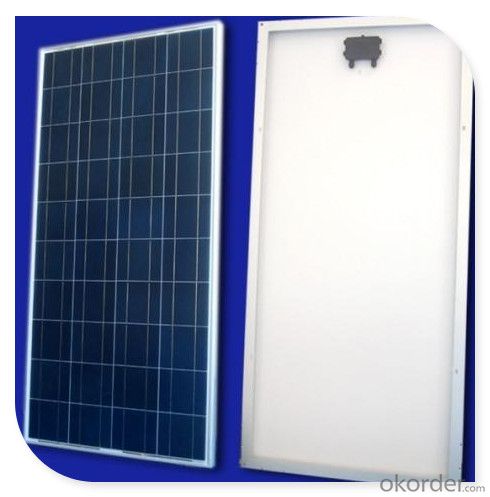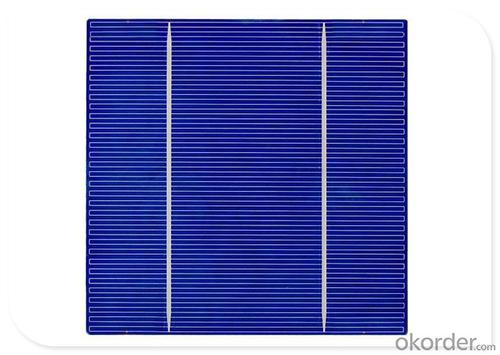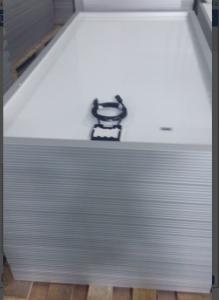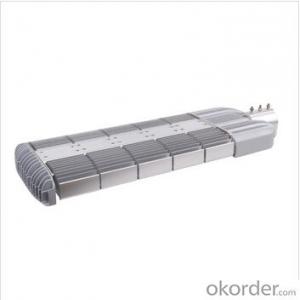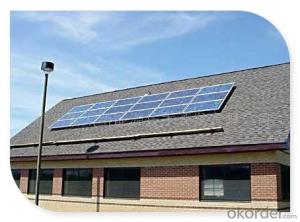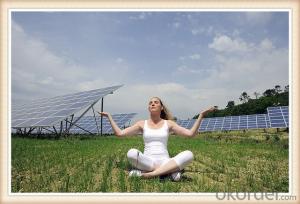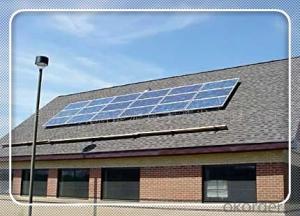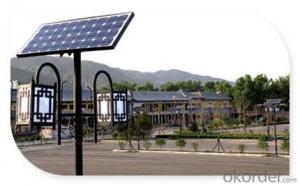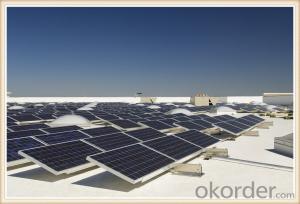Eagle Solar Panels - 20w Efficiency Chinese Solar Panels for Sale 5-200w
- Loading Port:
- China main port
- Payment Terms:
- TT OR LC
- Min Order Qty:
- 10000 watt
- Supply Capability:
- 100000 watt/month
OKorder Service Pledge
OKorder Financial Service
You Might Also Like
Specification
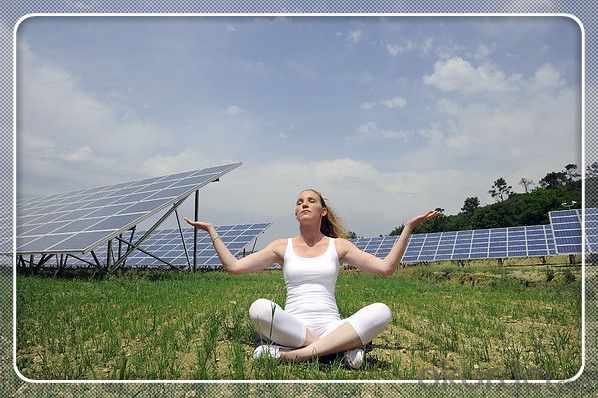
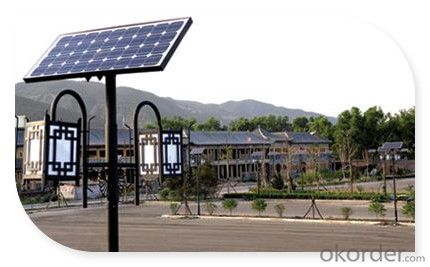
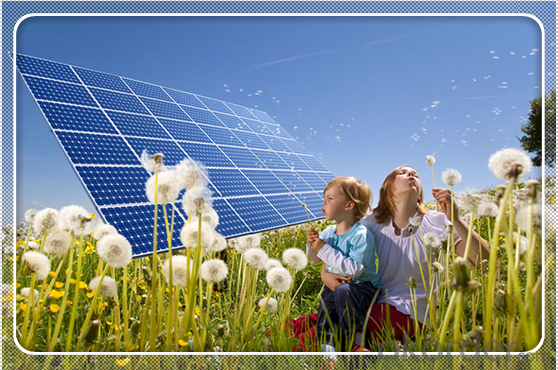
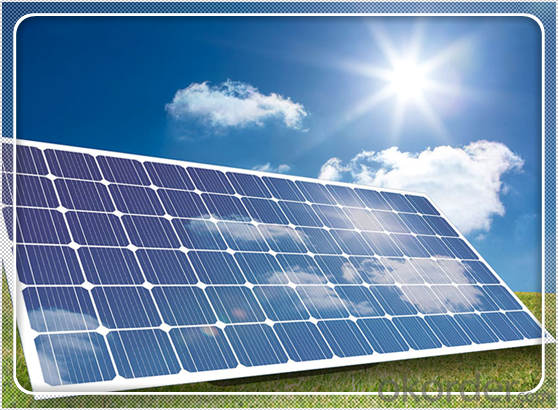
Solar Module Introduction
Solar Module is the core part of solar PV power systems, also is the highest value part of it. The function of Solar Module is to convert the sun's radiation to electrical energy, or transfer it to battery and store in it, or to drive the load running.
The Product has been widely used in space and ground, it mainly used for power generation systems, charging systems, road lighting and traffic signs areas. It could offer a wide range of power and voltage, and with high conversion efficiency, and long service life.
Solar modules use light energy (photons) from the sun to generate electricity through the photovoltaic effect. The majority of modules use wafer-based crystalline silicon cells or thin-film cells based on cadmium telluride or silicon. The structural (load carrying) member of a module can either be the top layer or the back layer. Cells must also be protected from mechanical damage and moisture. Most solar modules are rigid, but semi-flexible ones are available, based on thin-film cells. These early solar modules were first used in space in 1958.
Electrical connections are made in series to achieve a desired output voltage and/or in parallel to provide a desired current capability. The conducting wires that take the current off the modules may contain silver, copper or other non-magnetic conductive transition metals. The cells must be connected electrically to one another and to the rest of the system. Externally, popular terrestrial usage photovoltaic modules use MC3 (older) or MC4 connectors to facilitate easy weatherproof connections to the rest of the system.
Secification
Model Type | |
Peak Power-Pmax(W) | 5-200W |
Open Circuit Voltage-Voc(V) | 44.2 |
Maximum Power Voltage-Vmp(V) | 36 |
Short Circuit Current-Isc(A) | 5.4 |
Maximum Power Current-Imp(A) | 5 |
Maximum System Voltage | 1000V DC |
Maximum Series Fuse Rating | 10A |
Power Tolerance | -1~+3% |
Temperature Coefficients of Pmax | -0.45%/℃ |
Temperature Coefficients of Voc | -0.348%/℃ |
Temperature Coefficients of Isc | 0.031%/℃ |
Nominal Operating Cell Temperature | 44.5±2℃ |
Standard Testing Condition(STC) | Irradiance:1000W/m²;Temperature:25℃;AM=1.5 |
Qualification Test Parameters | |
Operating Temperature | -40℃~+85℃ |
Storage Temperature | -40℃~+85℃ |
Pressure Bearing | ≥5400Pascal/m² |
Wind Bearing | ≥5400Pascal/m² |
Mechanical Characteristics | |
Cell Size | Mono 125*125mm±0.5 |
No.of Cells | 72pcs(6*12) |
Dimension | 1580*808*40mm |
Weight | 15.5Kg |
Glass | 3.2mm High Transmission,Low Iron |
Frame | Anodized Aluminum Alloy |
Junction Box | IP65Rated |
Internal Diodes | 3 Bypass Diodes |
Cable | 1*4.0mm² Length 900mm |
Images
Packing & Shipping:
We have rich experience on how to pack the panels to make sure the safety on shipment when it arrives at the destination.
The normal size is packed by 25pcs/ carton / pallet. Paper carton for FCL shipping and wood carton for LCL shipping.
Warranty:
For c-Si panel: 25years output warranty for no less than 80% of performance, 10 years output warranty for no less than 90% of performance. Free from material and workmanship defects within 5 years.
For a-Si panel: 20 years output warranty for no less than 80% of performance, 10 years output warranty for no less than 90% of performance. Free from material and workmanship defects within 2 years.
FAQ:
(1)What price for each watt?
It depends on the quantity, delivery date and payment terms.
(2)What is your size for each module? Can you tell me the Parameter of your module?
We have different series of panels in different output, both c-Si and a-Si. Please take the specification sheet for your reference.
(3)Can you provide the peripheral products of the solar panels, such as the battery, controller, and inverter? If so, can you tell me how do they match each other?
Actually we are only manufacturer of solar panels, but we could try to source them for you in China if you need. We could provide you an optimal system design to instruct you how to install.
(4)Do you have the CE, TUV, UL Certification?
We’ve already passed all the tests, and any certificate is available.
(5)Have you ever sold your products to companies in my country?
Of course, we have customers in all general PV markets, but I think we should expand our market share along with the market growth.
(6)When did your company set up? You are a new company, how can I believe your quality?
We entered into Solar PV industry in 2005, now we have several plants in manufacturing of a-Si and c-Si panels, and our capacity is 220MW per year. Till now we have already passed all the tests by authorized laboratories, e.g. TUV, VDE, UL.
(7)Can you help us install the module if we cooperate with you?
We haven’t entered into installation sector, but we have the plan in near future.
(8) How do you pack your products?
We have rich experience on how to pack the panels to make sure the safety on shipment when it arrives at the destination.
(9) Can you do OEM for us?
Yes, we can.
(10)Can we visit your factory?
Surely, I will arrange the trip basing on your business schedule.
- Q: Any recommendation for best solar panels?
- If you are looking for the best solar panels, you should know that there are a variety of top manufacturers such as SunPower who make these panels. When shopping for solar panels there are a variety of choices you will need to make including what kind of panels you prefer. There are two main types of solar panels, traditional PV panels and thin film panels. GE solar panels are an ideal choice for residential, commercial or even industrial customers who want to harness the power of the sun. Hope the recommendation is good.
- Q: Can solar panels be connected to the grid?
- Yes, solar panels can be connected to the grid. Through a process called "grid-tied" or "grid-connected" solar system, the electricity produced by solar panels can be fed into the existing electrical grid, allowing for seamless integration and the potential to earn credits or receive compensation for excess energy produced.
- Q: Can solar panels be installed on camping sites?
- Yes, solar panels can be installed on camping sites. They provide a sustainable and reliable source of energy, allowing campers to power their devices and equipment while minimizing the environmental impact.
- Q: Can solar panels be used in deserts?
- Yes, solar panels can be used in deserts. In fact, deserts are ideal locations for solar panel installations due to the abundance of sunlight and limited cloud cover. The open and flat terrain of deserts allows for efficient placement and alignment of solar panels, maximizing their exposure to sunlight and increasing energy generation. Additionally, the dry desert climate helps in reducing dust and dirt accumulation on the panels, which can improve their efficiency.
- Q: How do solar panels affect the electricity bill?
- Solar panels can significantly reduce or even eliminate electricity bills by generating clean and renewable energy from the sun. By harnessing solar power, these panels can offset a portion or all of a household's electricity consumption, thereby reducing the amount of power needed from the utility grid. This ultimately leads to lower electricity bills and potential savings over the long term.
- Q: Hey guys :)Well I'm in the middle of doing my PSHCE coursework on sustainable energy, focusing on solar panels. I just wanted to ask you what your opinions are of them? Are they really worth it? Are they sustainable? Will they reduce our energy bills? Those sort of questions :)If you are interested in installing solar panels, please mention that, as it would be great! There's lots of information about them on this site ----
- I have a boat in a sunny place and four 80 watt panels. These will run my fridge Tv and a few LED's. I still have to run my engine for hot water and washing machine. My Batteries only last a few years and are a real pain. I go on the mains when I can to get the batteries topped up. The panels are ok if there is nothing else, they are not the answer to the future of energy supply. There is also the moral aspect of the feed in tariff. For the rich to load their electricity bill onto the less well off is not acceptable and those panels on the roof tell all your neighbors that you are doing it. That will show a greedy selfish attitude. If they are any good why don't the power companies buy them and save buying coal?
- Q: Can solar panels be installed on residential complexes or apartment buildings?
- Yes, solar panels can be installed on residential complexes or apartment buildings. Many residential complexes and apartment buildings have successfully installed solar panels to generate clean and renewable energy for their residents. This not only helps in reducing electricity bills but also contributes to a greener and more sustainable environment.
- Q: please help me
- Photovoltaic cells work because of the photoelectric effect. However, a solar panel can actually be using several different technologies that have the same common effect of generating electricity when the sun shines on them.
- Q: What would these solar panels power? For instance, my energy bill shows 2035kWh for last month. How much would this remove from that if it outputted full power? Thanks!
- These panels are for small remote applications. Traffic signs, motion sensor lights, etc, where it would cost more to run an electrical line than it does to buy the panel.
- Q: Can solar panels be installed on a school or university campus?
- Yes, solar panels can be installed on a school or university campus. Many educational institutions are embracing solar energy as a sustainable and cost-effective solution for their energy needs. Installing solar panels on campus can help reduce electricity costs, lower carbon emissions, and provide educational opportunities for students to learn about renewable energy. Additionally, schools and universities can take advantage of various incentives and grants available for renewable energy projects, making solar panel installation an attractive option.
Send your message to us
Eagle Solar Panels - 20w Efficiency Chinese Solar Panels for Sale 5-200w
- Loading Port:
- China main port
- Payment Terms:
- TT OR LC
- Min Order Qty:
- 10000 watt
- Supply Capability:
- 100000 watt/month
OKorder Service Pledge
OKorder Financial Service
Similar products
Hot products
Hot Searches
Related keywords
